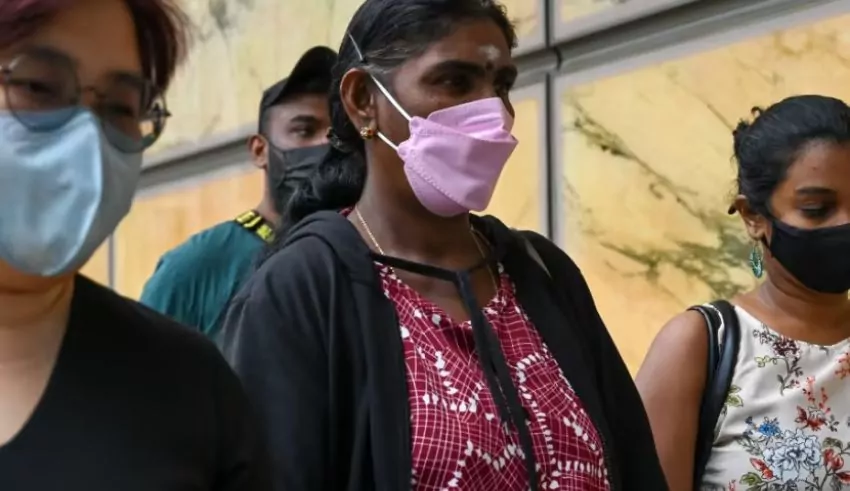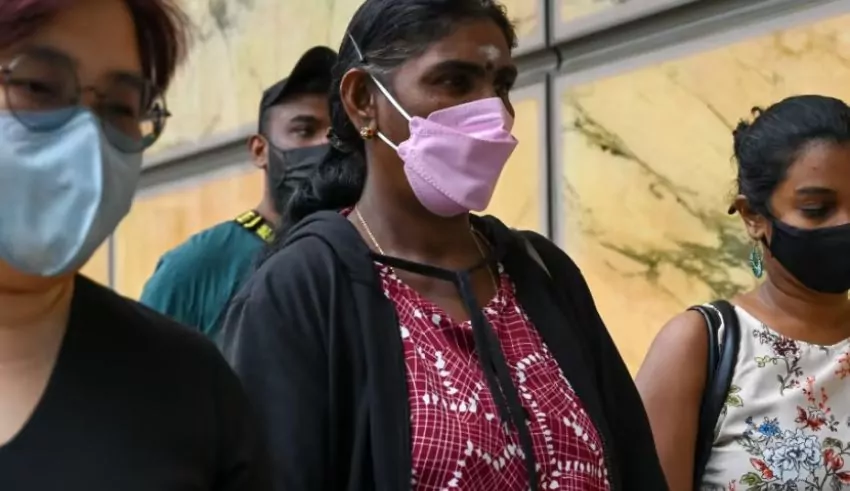

(C) Today Online
Singapore is set to carry out its first execution of a woman, since 2004, found guilty of possession of about 30g of heroin. Saridewi Djamani was sentenced to the mandatory death penalty in 2018 for drug trafficking. The last woman to be executed was 36-year-old Yen May Woen, a hairdresser. She was hanged in 2004.
Chiara Sangiorgio, Amnesty International’s death penalty expert, says it is unconscionable that authorities in Singapore continue to cruelly pursue more executions in the name of drug control. She highlighted there is no evidence that the death penalty has a unique deterrent effect or that it has any impact on the use and availability of drugs.
“As countries around the world do away with the death penalty and embrace drug policy reform, Singapore’s authorities are doing neither. The only message that these executions send is that the government of Singapore is willing to once again defy international safeguards on the use of the death penalty. It is past time Singapore reverse course; consign the death penalty to the history books; and take a serious look at offering more effective protection from drug-related harm, such as by expanding access to health and social services, including for people who use drugs and addressing the underlying socio-economic causes that lead people to engage in the drug trade.”
Amnesty International renewed its call on governments, the United Nations Office on Drugs and Crime (UNODC) and the International Narcotics Control Board (INCB) to pressurize Singapore to end such executions and for drug control policies to be rooted in the promotion and protection of human rights.
Kirsten Han, a journalist and activist who has been campaigning against the death penalty, said once Saridewi exhausted her appeal options it was a matter of time that she would be given an execution notice. She said authorities are not moved by the fact that most of the people on death row come from marginalized and vulnerable groups. “The people who are on death row are those deemed dispensable by both the drug kingpins and the Singapore state.”
56-year-old Mohd Aziz bin Hussain also faces execution. He was sentenced to death in 2018 for trafficking about 50g of heroin. Hussain’s case made headlines as an investigating officer had coerced him and promised him a reduced, non-capital punishment charge.
In May, Singapore executed two men in three weeks for cannabis trafficking.
Since August 2024 two group captains helped prepare by studying spaceflight at training facilities around the United States, Europe and…
South Korean President Yoon Suk Yeol has been removed from office due to issues concerning martial law. A significant shift…
On Thursday night, Milwaukee Bucks player Giannis Antetokounmpo made NBA history by becoming the first player to score 35 points,…
On Thursday, April 3, 2025 at 10:12 a.m. Beijing time, China made a successful orbit placing satellite launch of Tianping-3A…
SM Entertainment has formally ceased for Wendy and Yeri of Red Velvet. But this is not the end of their…
As President Donald Trump declared economic independence through new tariffs he placed significant harm on developing countries in Southeast Asia…
This website uses cookies.
Read More